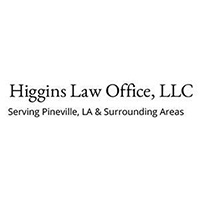Batchelor RICO Act Lawyer, Louisiana
Sponsored Law Firm
-
 x
x

Click For More Info:
-
The Law Offices of Richard L. Cooper, P.A.
848 Brickell Avenue Suite 800 Miami, FL 33131» view mapDWI/DUI, Drug Trafficking, Felony Nationally Ranked Top 40 Under 40
With Richard L. Cooper you can expect a trusted confidant who will work diligently to fully understand your case and determine a road map to help you regain control of your life.
800-756-2781
Not enough matches for Batchelor RICO Act lawyer.
Below are all Batchelor Criminal lawyers.
Jacob Guice Longman
✓ VERIFIEDJacob is a 2017 graduate of the Paul M. Hebert Law Center. During law school, he participated in Trial Advocacy and Moot Court, was President of the S... (more)
Kathryn Jakuback Burke
✓ VERIFIEDKathryn graduated from LSU’s Paul M. Hebert Law Center in 2017. During law school she was an active participant in Moot Court and Trial Advocacy. Du... (more)
James P Manasseh
✓ VERIFIEDThe managing partner of the largest criminal defense intensive law firm in Louisiana, Manasseh has represented more than 12,000 clients over a twenty-... (more)
Stephen Babcock
✓ VERIFIEDA Louisiana native, Stephen Babcock has developed a reputation for taking on high-profile cases involving catastrophic personal injury matters and bus... (more)
George Higgins
✓ VERIFIEDGeorge Lewis Higgins III received his Juris Doctor degree in 1979 from Paul M. Hebert Law Center at Louisiana State University in Baton Rouge. Mr. Hig... (more)
Ted Williams
FREE CONSULTATION
CONTACTGracella Gail Simmons
FREE CONSULTATION
CONTACTFREE CONSULTATION
CONTACTFREE CONSULTATION
CONTACT
 Richard L. Cooper Miami, FL
Richard L. Cooper Miami, FL AboutMiami Attorney at Law
AboutMiami Attorney at Law ServicesCriminal Defense
ServicesCriminal Defense







